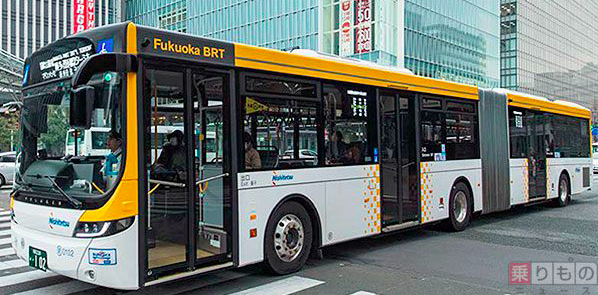|
Miki's father submitted a suggestion for a name for the new panda at Tokyo's Ueno Zoo by online poll. Unfortunately, he wasn't successful.
Have you ever entered a competition, poll or ballot online, or by post? And, were you successful? I was lucky to win tickets to see finals games at Wimbledon back in 1989. Here is a link to the article. www.japantimes.co.jp/news/2017/09/25/national/baby-panda-ueno-zoo-named-xiang-xiang/#.WdBNS0yB2jQ Words and usage: What is the difference between competition, poll or ballot online? Well, a competition is where you compete against other entrants to win a prize by giving a better answer, idea or piece of work, such as a drawing. A poll is where you give your opinion on a topic, hoping that your answer will be the most popular. A ballot is a secret poll where names go into a pool from which a smaller number will be drawn as lucky winners, for example, of tickets to an event. Other forms and uses can be found at Oxford Dictionaries. Grammar point: 'Have you ever.....' The perfect tense is the name of the grammar often used to convey one of two points about an action; 1, how many times it has happened, and 2, over what time period. Present perfect is used for things which started in the past and are continuing in the present or still have an effect now. 'Ever' means since you were born or since something started. For example, 'have you ever been to an opera?' More explanation can be found at The British Council website. Practice: Write about an idea you have for your city or workplace, or a new product. Quiz Me! Conversation card: Card F7 below is from General Level 1, pack 2. Available to buy at englishbooks.jp #大人 #英会話
0 Comments
Michiko saw one of the new articulated buses, also known as a 'bendy bus', running around in Fukuoka. There are three in service in Fukuoka, and now they operate from the Noko Ferry early in the morning.
In case you are not aware, they are the elongated buses that are in two parts divided by a flexible section in the middle, hence the humorous name. The reason for using such long buses is their bigger capacity, which gives higher revenue during rush hour and greater cost savings over normal sized buses, drivers and fuel. She really wants to ride on one! Have you ever ridden on one? Do you seek out new experiences, whether something like this, or going to new shops or restaurants? Words and usage: 'Hence' is another much shorter way to say 'which is the reason for'. Another example, 'the A team lost the final game, hence the sad faces'. Other forms and uses can be found at Oxford Dictionaries. Grammar point: Comparatives 'Bigger', 'higher' and 'greater are all adjective plus 'er' combinations, which say that something is different (perhaps greater or lesser) when compared to another thing. In this case, the 'other object' is a normal sized bus. We usually replace the 'er' form with 'more' or 'less' plus adjective, where the adjective has 2 or more similar syllables in its sound. For example, 'fast' has one syllable, hence 'faster', whereas 'beautiful' has three, which is why we say 'more beautiful'. More explanation can be found at The British Council website. Practice: Look at the local English information page on the internet, and find a few events that interest you. Compare them to other events you know using the comparatives we talked about above. Quiz Me! Conversation cards. Available to buy at englishbooks.jp #大人 #英会話 Do you know a good, local engineer to go to when an electrical device breaks?
Hiroshi's hi-fi stopped working, so he took it to a local shop. The engineer was experienced and competent, but was unable to repair it. Instead, he kindly lent Hiroshi a spare CD player until he could buy a new one. Words and usage: 'stop working' is usually used for electronic devices or machines, such as electrical appliances, computers, tablets or mobile phones. For big mechanical things like cars or trucks, in the UK we often say 'break down'. Other forms and uses can be found at Oxford Dictionaries. Different informal phrases we might use include 'blow up' and 'die'. Grammar point: 'stop working''. In this case, the hi-fi always worked when it was switched on, so its service was continuous (...ing), ......until it stopped working. We can also use this form for other continuous actions by people, such as driving, smoking or playing computer games, which we may start or stop doing for reasons of time, money or health. More explanation can be found at The British Council website. Practice: Think of things you have at home that have stopped working in the past, or activities which you stopped doing. Write a short topic about it. Quiz Me! Conversation card: Card A1 below is from the new 'Fortunately' game pack. (to be released 2018) (Future) Available to buy at englishbooks.jp #大人 #英会話 Izumi was absent last week as she was visiting Italy.
Her trip took in Roma and Firenze, visiting places such as the Vatican, the Colliseum, the Pantheon and the Uffizi Gallery. Have you been to Italy? What was the most impressive place you saw? Izumi asked which place(s) we would like to visit again, if we had the chance. How about you? Here is a link to the Italian Tourism Authority website (in English). Vocabulary: 'take in (places)' means to visit or see. Other uses of 'take in' can be found at Oxford Dictionaries. Grammar point: 'Izumi was absent last week as she was visiting Italy.' Past continuous is used to say what was happening at a particular time point in the past (last week's regular lesson time). More explanation can be found at The British Council website. Practice: Look at photos of people on your phone and make sentences to say what they were doing at the time you took the picture. For example, 'she was smiling at the camera'. Action: Why not write about a recent trip you made overseas Quiz Me! Conversation card: Starter pack, C2 Available to buy at englishbooks.jp #大人 #英会話  Rina talked this morning about a pair of shoes she bought on the internet. Unfortunately, they were the wrong size and didn't look like the image in the advert. If you bought something online or in a shop, but it wasn't what you wanted, would you take it back and ask for a refund or just keep it? Do you have anything at home now that you've been meaning to take or send back? One day soon, I'll take back those two shirts that don't fit!  This is the first entry in a blog that will appear several times a week featuring topics from conversation classes in an English school for adult EFL learners. It is possible to fit English study into your busy life with short topics about things we can all relate to; personal and family events, work, current news stories, (local, national and international in nature) and social issues. Why not join us and spend a little time ‘topping up’ your English at your convenience. #大人 #英会話 |
AuthorAn Englishman living in Japan who describes himself as a 'Conversation Encourager'. ArchivesCategories |




 RSS Feed
RSS Feed